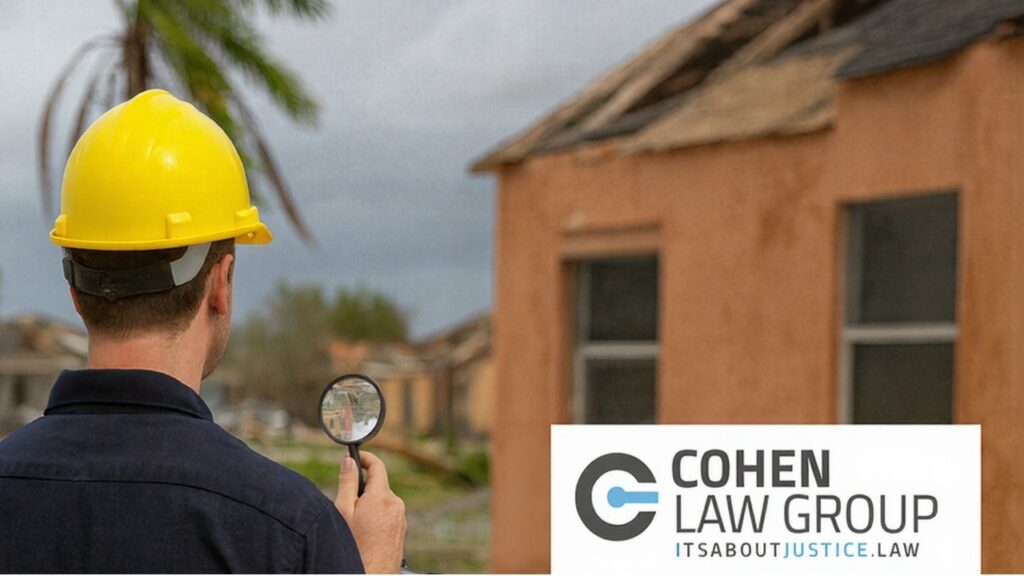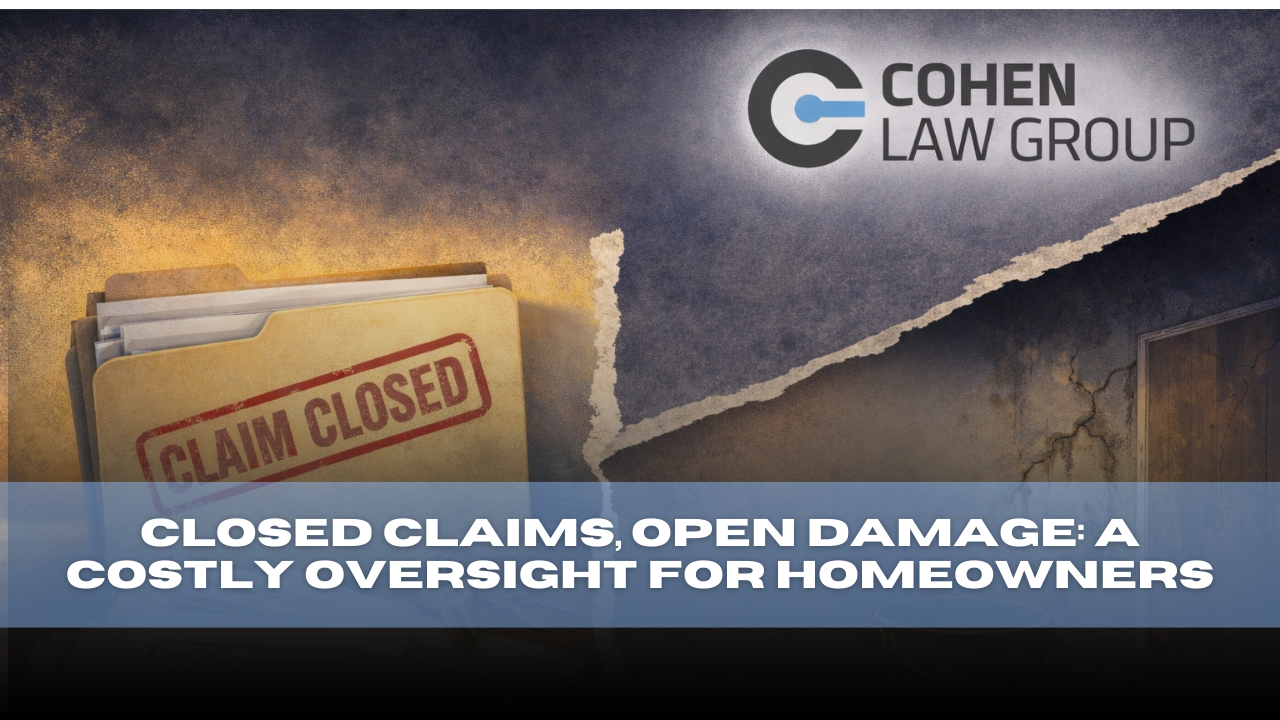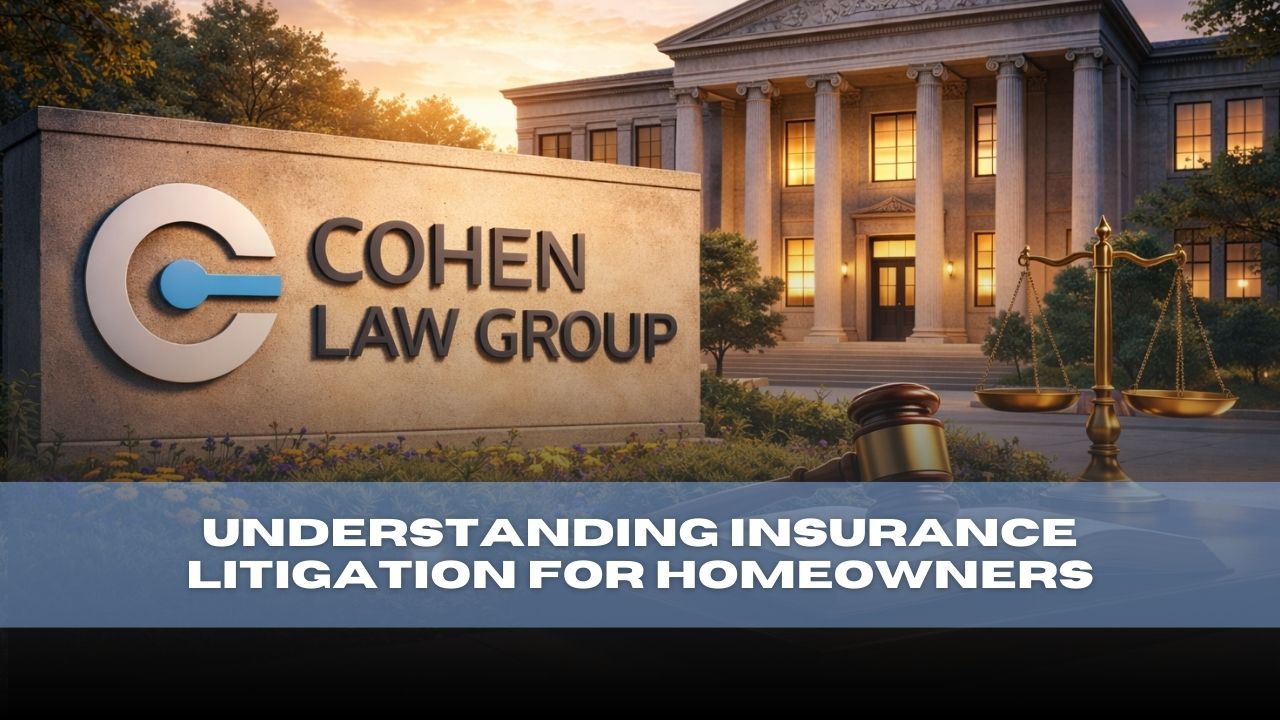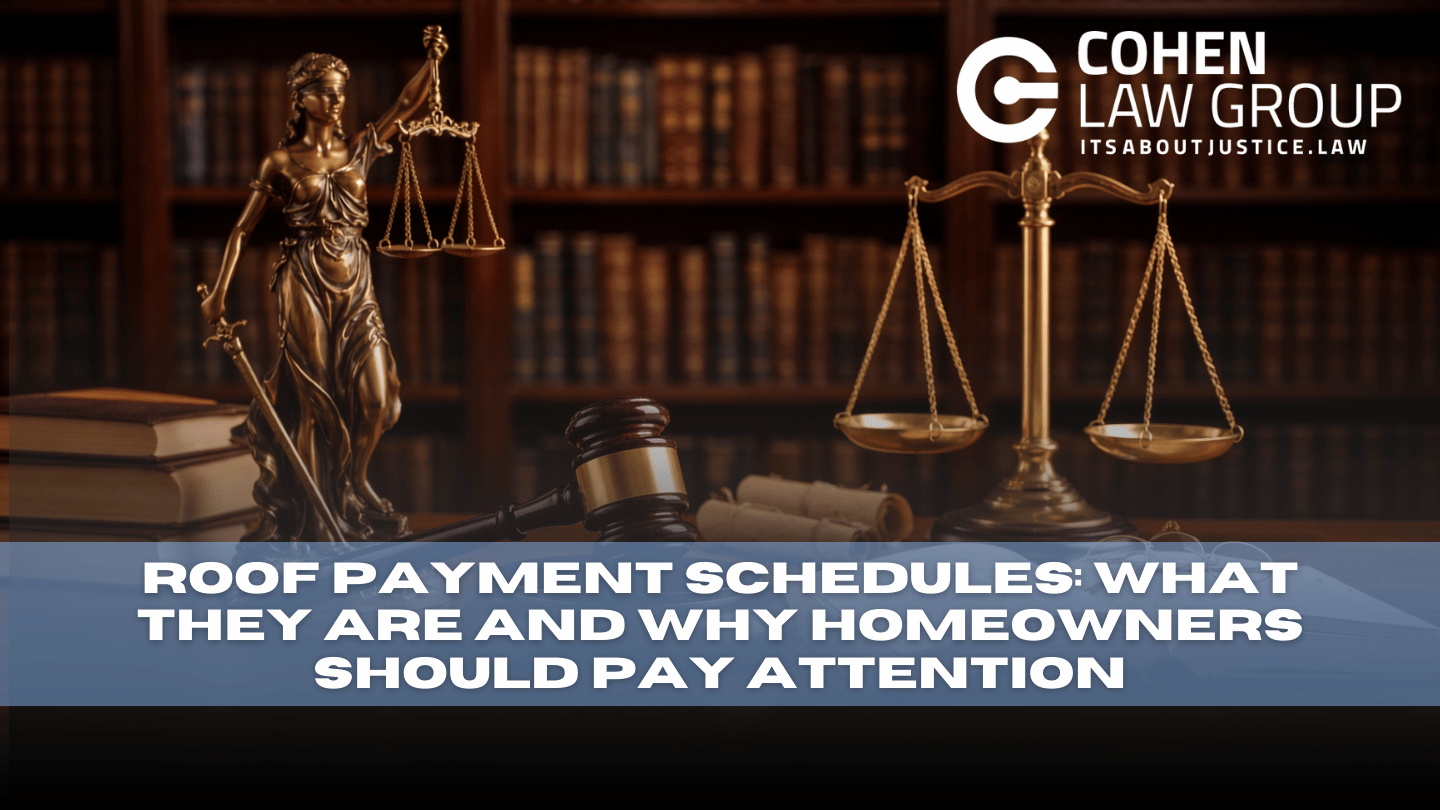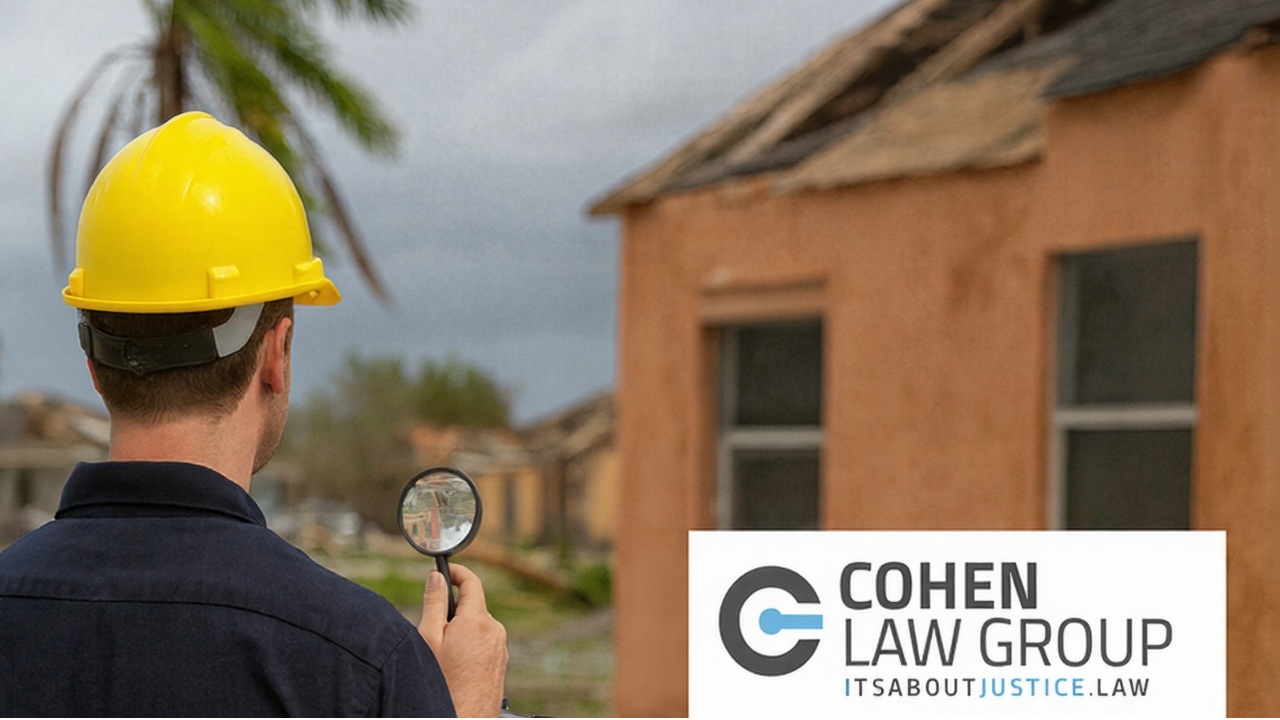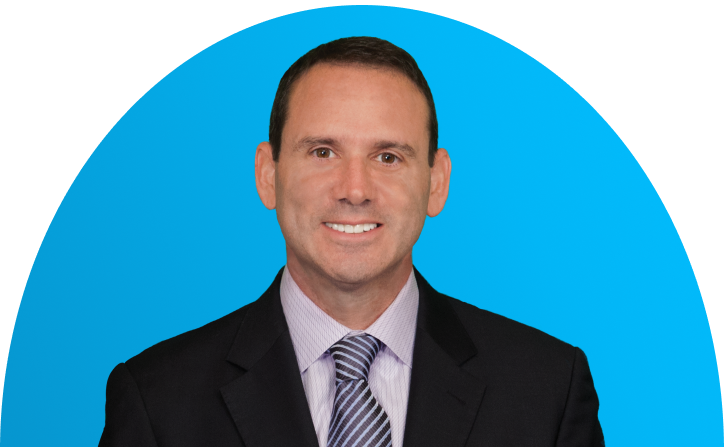Why Condominium & HOA Boards Must Conduct Post-Storm Inspections and Promptly Report Insurance Claims in Florida
Florida’s climate makes community associations uniquely vulnerable to severe weather. From routine summer thunderstorms to catastrophic hurricanes, high-wind and water events can cause both obvious and hidden property damage. For condominium and HOA boards, what happens after the storm is often just as important as the storm preparation itself.
Timely inspections — followed by prompt notice to the association’s insurance carrier — are essential steps in protecting the community, fulfilling fiduciary duties, and positioning the association for a successful insurance claim. Here’s why these actions matter so much.
- Florida Law Places Specific Duties on Boards
Condominium and HOA board members have fiduciary obligations to act in the best interest of the association. After a storm, this means:
- Assessing the condition of the property
- Taking reasonable steps to prevent further damage
- Reporting potential losses to insurance carriers
Failing to inspect or delaying action can expose the association to risks, including uninsured losses, legal claims from owners, and potential personal liability for board members if negligence is involved.
- Hidden Damage Is Common After Florida Storms
Not all storm damage is obvious. Wind-driven rain, compromised roofing systems, water intrusion behind walls, and structural stress can go unnoticed until the problem becomes severe.
Professional inspections help uncover:
- Roof damage and lifted shingles or tiles
- Water infiltration and moisture buildup
- Wind damage to windows, doors, and balconies
- Compromised building envelope systems
- Damage to electrical, plumbing, or HVAC components
Early detection saves associations money by preventing minor issues from becoming major repair projects.
- Insurance Policies Require Prompt Notice
Nearly every property insurance policy includes strict requirements for:
- Prompt notice of a loss
- Reasonable measures to mitigate further damage
- Documentation of the condition of the property
Delays in reporting can give insurance carriers grounds to limit coverage or deny the claim entirely. Boards that wait weeks or months — often because damage was overlooked or underestimated — risk jeopardizing coverage for what might otherwise have been a fully insurable loss.
Prompt reporting preserves the association’s rights and helps ensure that the carrier cannot argue prejudice or late notice.
- Fast Action Preserves Evidence
Insurance adjusters will assess the property themselves, but by that time:
- Damage may have worsened
- Repairs may have already begun
- Weather conditions may have changed
A board-initiated post-storm inspection provides the first snapshot of the property’s condition, creating crucial evidence that can be used during the claims process.
Having clear photos, moisture readings, engineering notes, and contractor observations strengthens the association’s position significantly.
- Inspections Help the Board Budget and Plan
Even when a storm does not produce an insurable loss, an inspection:
- Guides maintenance plans
- Highlights vulnerabilities
- Helps the board adjust reserves
- Informs future mitigation measures
This allows boards to make educated decisions, protect property values, and maintain long-term financial stability.
- It Shows Owners the Board Is Proactive and Responsible
Homeowners expect transparency and leadership following a storm. A board that conducts inspections and communicates findings:
- Demonstrates diligence
- Builds trust with residents
- Reduces misinformation and speculation
- Provides reassurance during stressful times
Clear communication after a storm is one of the strongest tools a board has to maintain community confidence.
- Professional Inspectors Understand Insurance Standards
Associations benefit greatly from storm-focused professionals such as:
- Licensed contractors
- Property inspectors
- Roofing specialists
- Engineers
- Public adjusters
These experts know what insurance carriers look for, how to document damage properly, and how to identify issues that general maintenance staff might overlook.
Conclusion: Inspections + Prompt Reporting = Protection
After a storm, time is the board’s most valuable asset. Conducting thorough inspections and promptly reporting any potential claim is not just best practice — it is a fiduciary obligation and a critical step in protecting the association’s financial health.
A proactive board puts the community in the strongest possible position to recover, rebuild, and move forward.

